Journal list menu
Export Citations
Download PDFs
Issue Information
Review Article
Emotional intelligence evaluation tools used in allied health students: A scoping review
- Pages: 177-192
- First Published: 22 December 2024
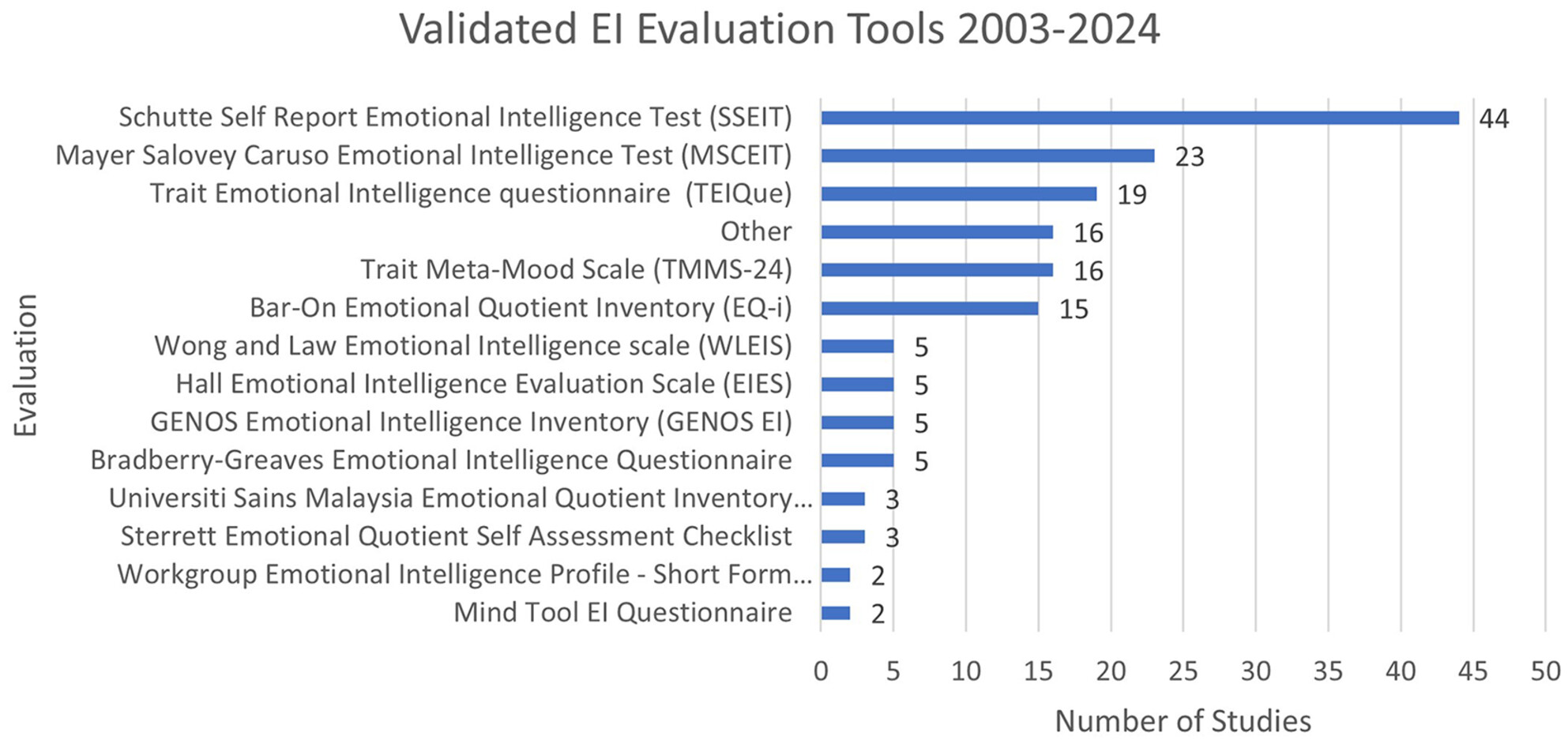
This scoping review synthesises existing research on emotional intelligence (EI) outcomes, specifically in undergraduate allied health professions students. A total of 163 papers assessing EI among allied health, nursing and medical students were evaluated. Existing literature reveals there is some consensus on the importance of EI in healthcare education, but there is considerable variability in how EI is measured. Studies suggest higher levels of EI may correlate with improved student professional skill development in clinical reasoning, empathy and stress management.
Original Article
The ongoing impact of COVID-19 on the clinical education of Australian medical radiation science students
- Pages: 193-201
- First Published: 13 January 2025
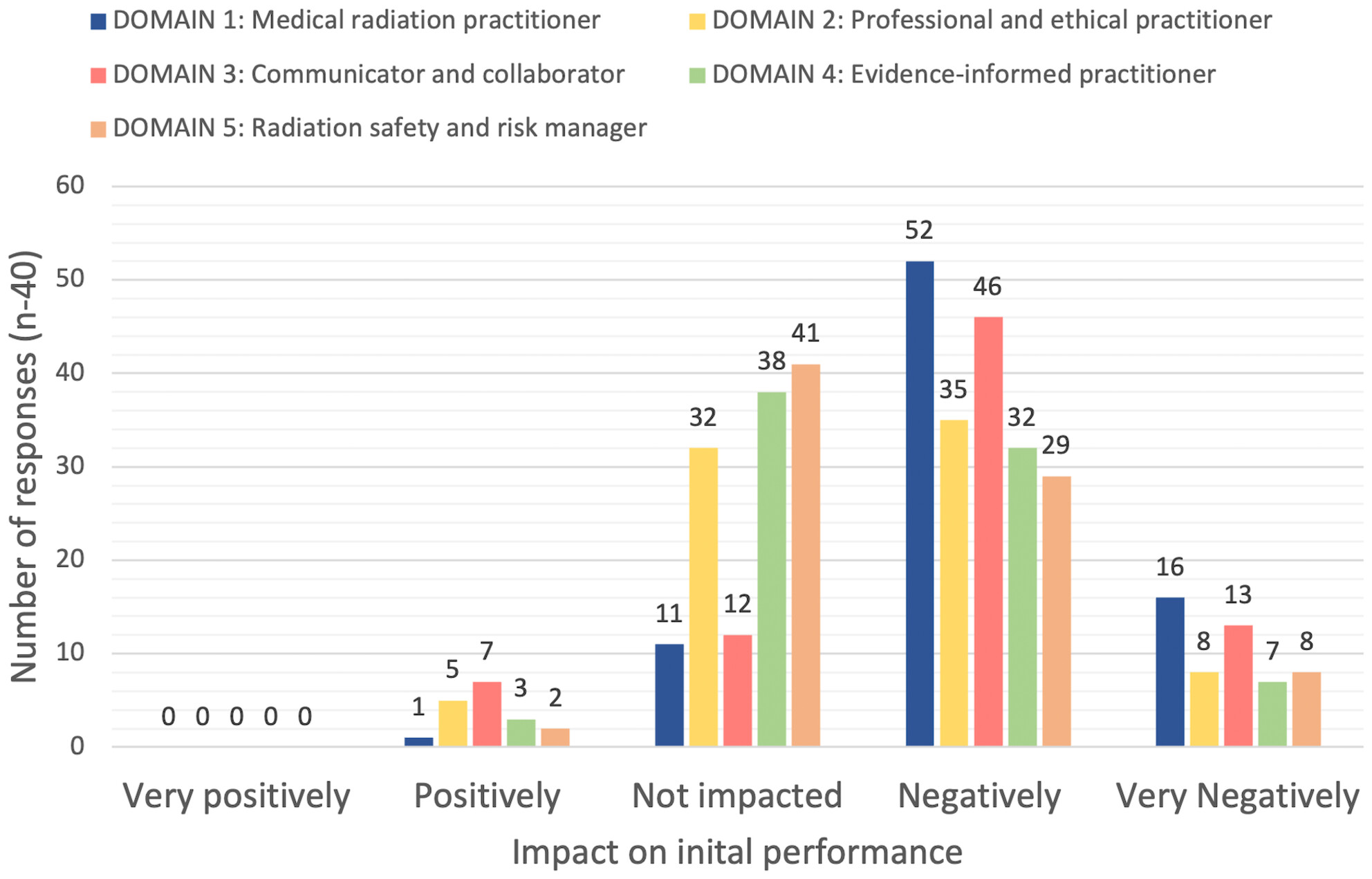
This study describes the results of a survey of workplace clinical educators on the perceived effects of changes to student placements and training as a result of managing the COVID-19 pandemic. The study demonstrates concerning responses, including a perceived theory to practice gap, and what would appear to be a general acceptance of an inability of students to meet MRPBA capability. There is also a suggested supported period of practice upon entry to the profession.
Collaborative use of a 3D anatomy platform to motivate and enhance anatomy learning in first-year online medical sonography students
- Pages: 202-208
- First Published: 13 December 2024
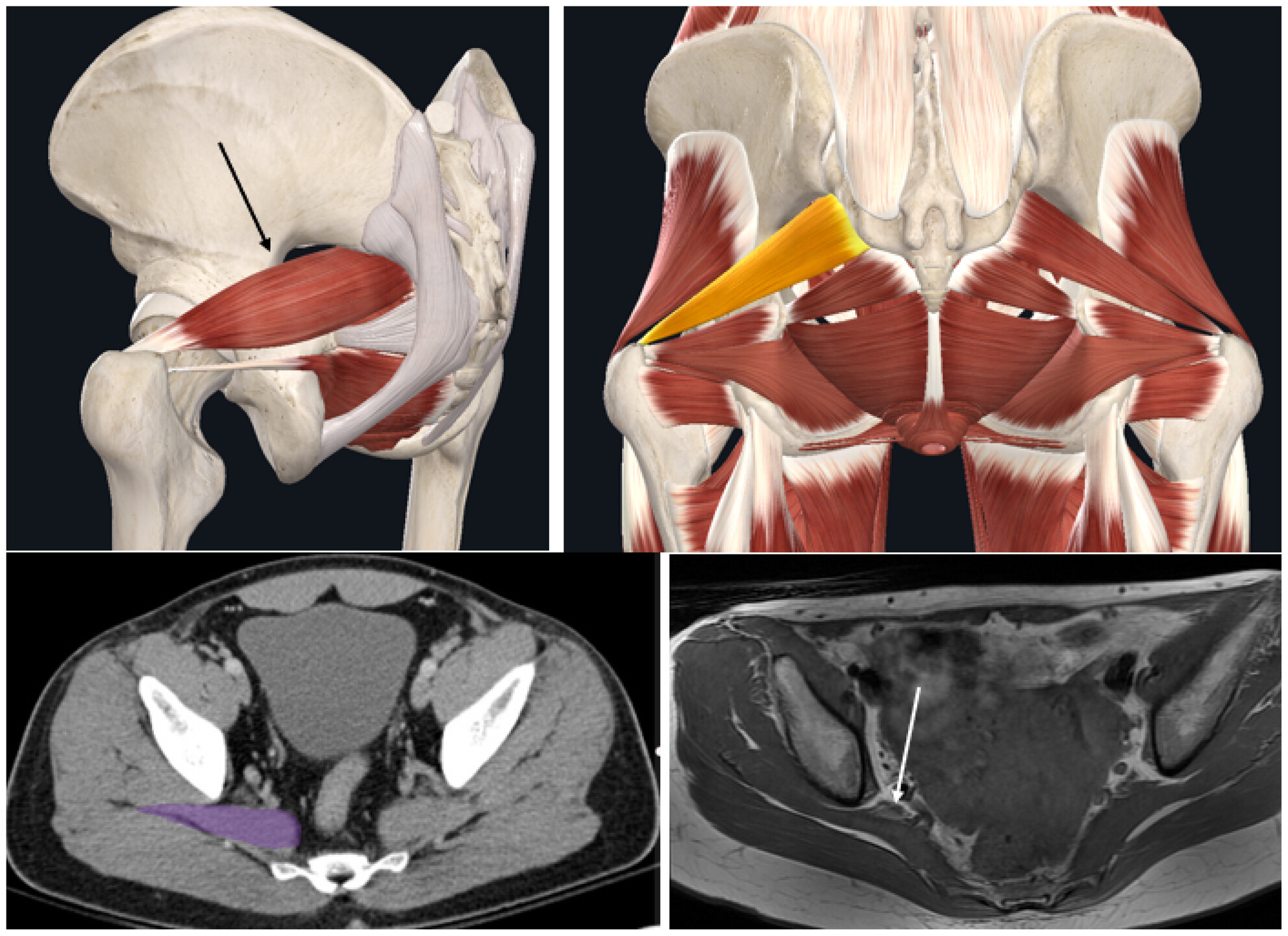
Studying anatomy online, particularly learning how to identify structures from medical images is challenging. Using a 3D online anatomy platform in a scaffolded manner, enhanced relational anatomy learning and understanding in first-year medical sonography students, who undertake their foundational learning online. Learning relational anatomy and how to identify structures from medical images in an online environment is challenging. The scaffolded use of an interactive 3D anatomy platform allowed learning to be more active and generated discussions to enhance spatial 3D anatomy understanding, which improved connections between students and made learning playful, social and fun.
An evaluation of a checklist in musculoskeletal radiographic image interpretation when using artificial intelligence
- Pages: 209-216
- First Published: 20 December 2024

A checklist to aid radiographic image interpretation for radiographers using AI for image interpretation was formed. Radiographers were asked to interpret five musculoskeletal (MSK) examinations with AI feedback before and after the use of the checklist. The checklist for use with AI in MSK image interpretation contained useful elements to the user but further developments can be made to enhance its use in clinical practice.
An Evaluation of Treatment Time and Intrafraction Motion in Stereotactic Body Radiation Therapy
- Pages: 217-224
- First Published: 30 January 2025
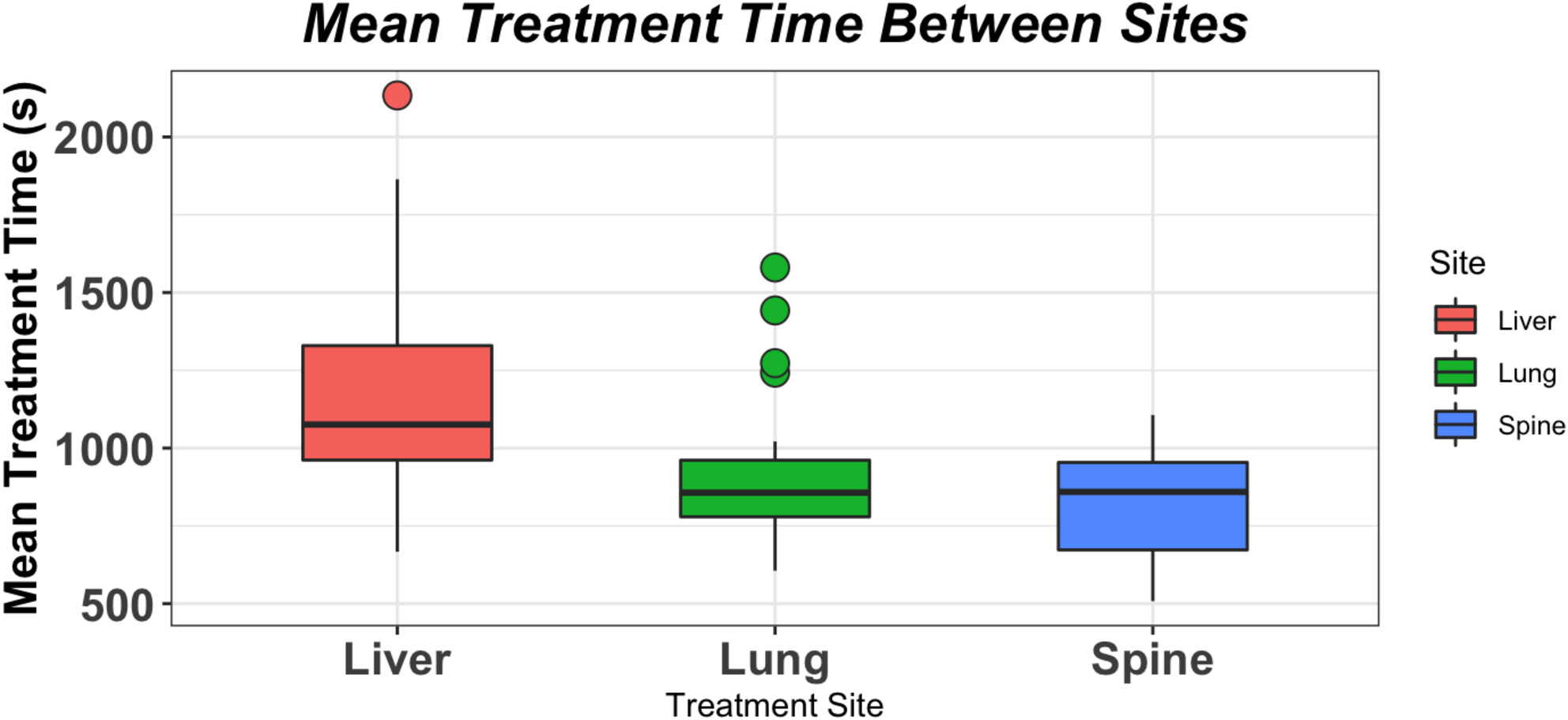
This study aimed to establish mean treatment times and intrafraction motion from the localisation image to the post-treatment image in SBRT liver, lung and spine patients that utilised Elekta Intrafraction Imaging (IFI). SBRT liver patients exhibited the greatest treatment times and 3D vectors, followed by lung and spine. Intrafraction imaging is required in liver and lung SBRT treatments to identify instances where clinical tolerances are exceeded.
Bridging theory and practice: Experiences of diagnostic radiography students during clinical training in resource-constrained settings
- Pages: 225-233
- First Published: 30 December 2024
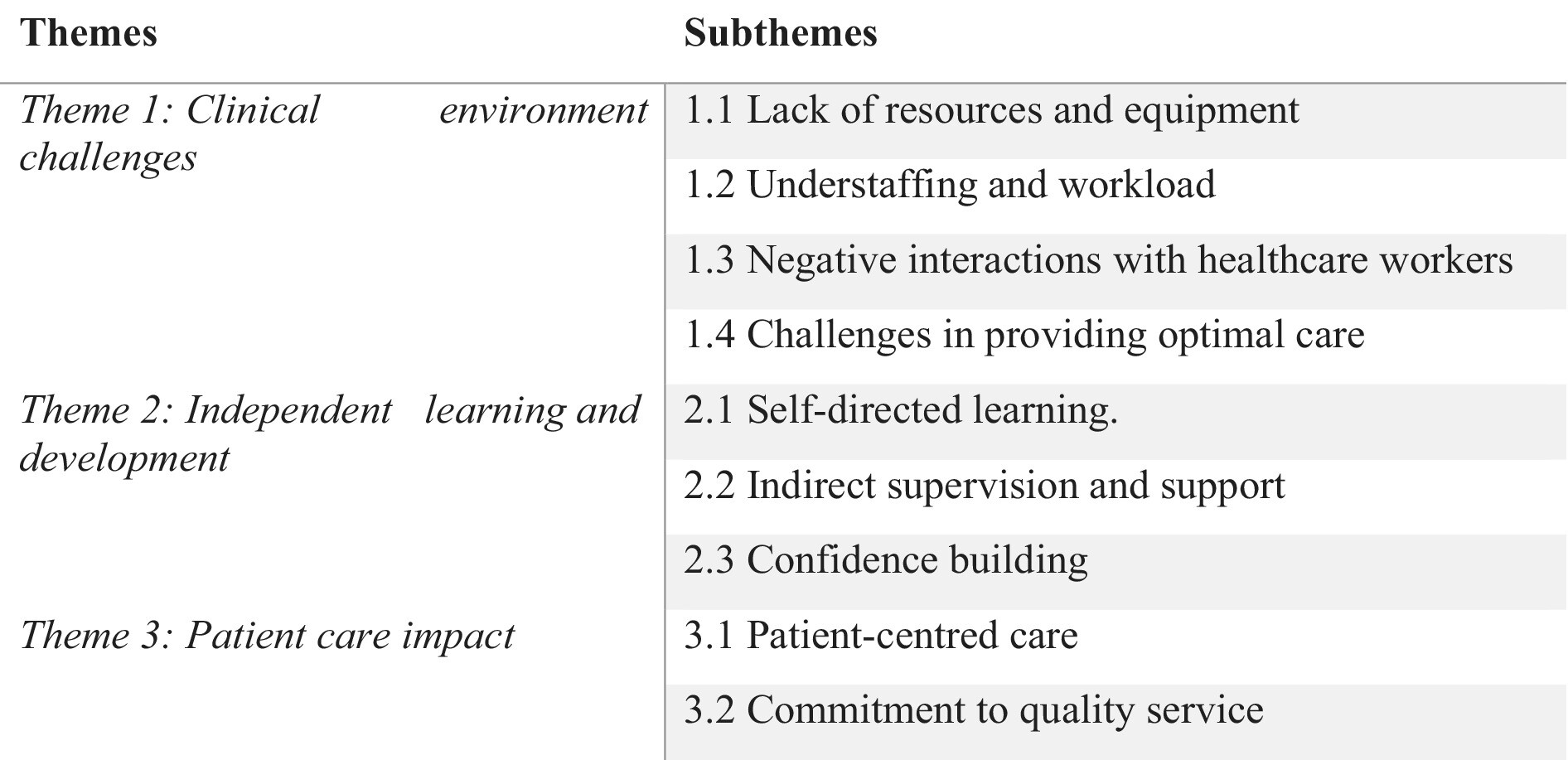
The study explored diagnostic radiography students' clinical training experiences in resource-constrained settings. Findings reveal challenges like equipment shortages and understaffing, but highlight students' resilience and commitment to patient care. Results underscore the need for targeted interventions, including increased resources, improved supervision and curriculum enhancements to optimise learning outcomes in challenging environments.
Assessing chest radiographic quality and the influence of COVID-19 pathology: the Australian experience
- Pages: 234-243
- First Published: 02 January 2025

This study evaluates the impact of COVID-19 pathology on the quality of chest X-rays (CXRs) using an established European Guideline tool for image quality assessment. Results indicate that CXRs with COVID-19 features have lower technical quality scores compared to non-COVID-19 images, though their diagnostic value remains unaffected. The findings suggest prioritising diagnostic ability over technical quality in CXRs with severe pathology.
Acceptability, benefits and barriers of electronic health record radiology image sharing: A mixed-method study
- Pages: 244-254
- First Published: 27 March 2025
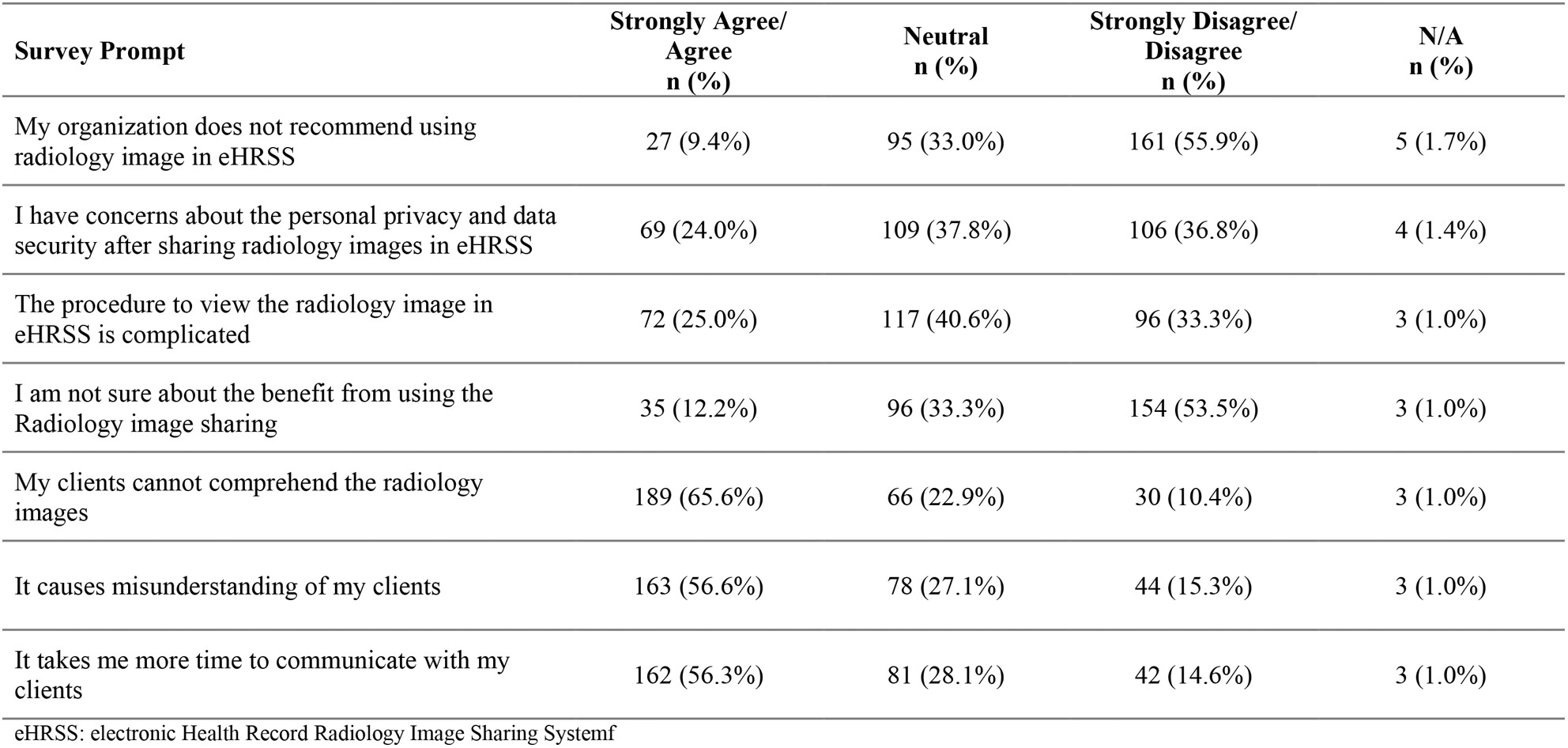
This study examined the acceptability, benefits and barriers of electronic Health Record radiology image sharing as perceived by patients and physicians. This study found radiology image sharing can help improve the management and performance of medical services, but information asymmetry and insufficient publicity still affect the development of information sharing.
Exploring MRI Safety Knowledge Among Physicians and Nurses in Saudi Arabia: Highlighting Knowledge Gaps and Key Influencing Factors
- Pages: 255-263
- First Published: 15 January 2025

This study evaluated MRI safety knowledge among 387 physicians and nurses in Jeddah, revealing significant gaps across all safety domains, including basic MRI concepts, projectile hazards and contrast media risks. Factors such as healthcare sector type, qualifications, experience, workshop attendance, and MRI safety education were found to significantly influence knowledge levels. The findings emphasise the need for targeted education and training to enhance MRI safety in healthcare settings.
Letter to the Editor
Evaluating Proton Versus Photon Therapy: A Call for Nuanced Decision-Making
- Pages: 264-265
- First Published: 10 January 2025
Response to Letter to the Editor Regarding ‘Is Proton Beam Therapy Always Better Than Photon Irradiation? Lessons From Two Cases’
- Pages: 266-267
- First Published: 26 March 2025
Impact of Pre-Examination Video Education in Gd-EOB-DTPA-Enhanced Liver MRI: Correspondence
- Pages: 268-269
- First Published: 13 January 2025
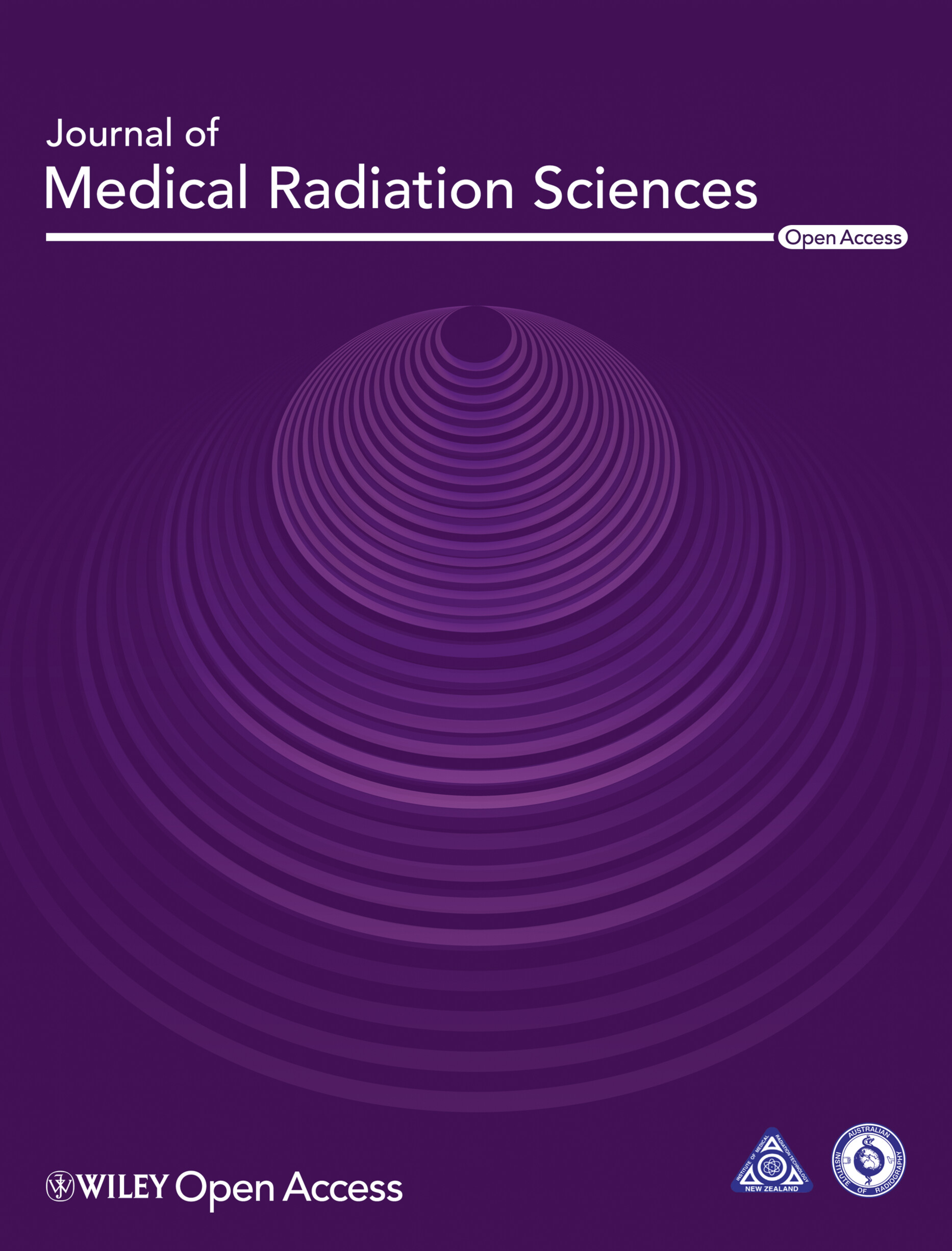
This correspondence is in response to the article ‘Impact of Pre-Examination Video Education in Gd-EOB-DTPA-Enhanced Liver MRI: A Comparative Study’ (doi.org/10.1002/jmrs.833). The study provides valuable initial insights into the impact of video-based education. Further research in this area is recommended.
Correspondence to “Impact of Pre-Examination Video Education in Gd-EOB-DTPA-Enhanced Liver MRI: A Comparative Study”
- Page: 270
- First Published: 25 February 2025
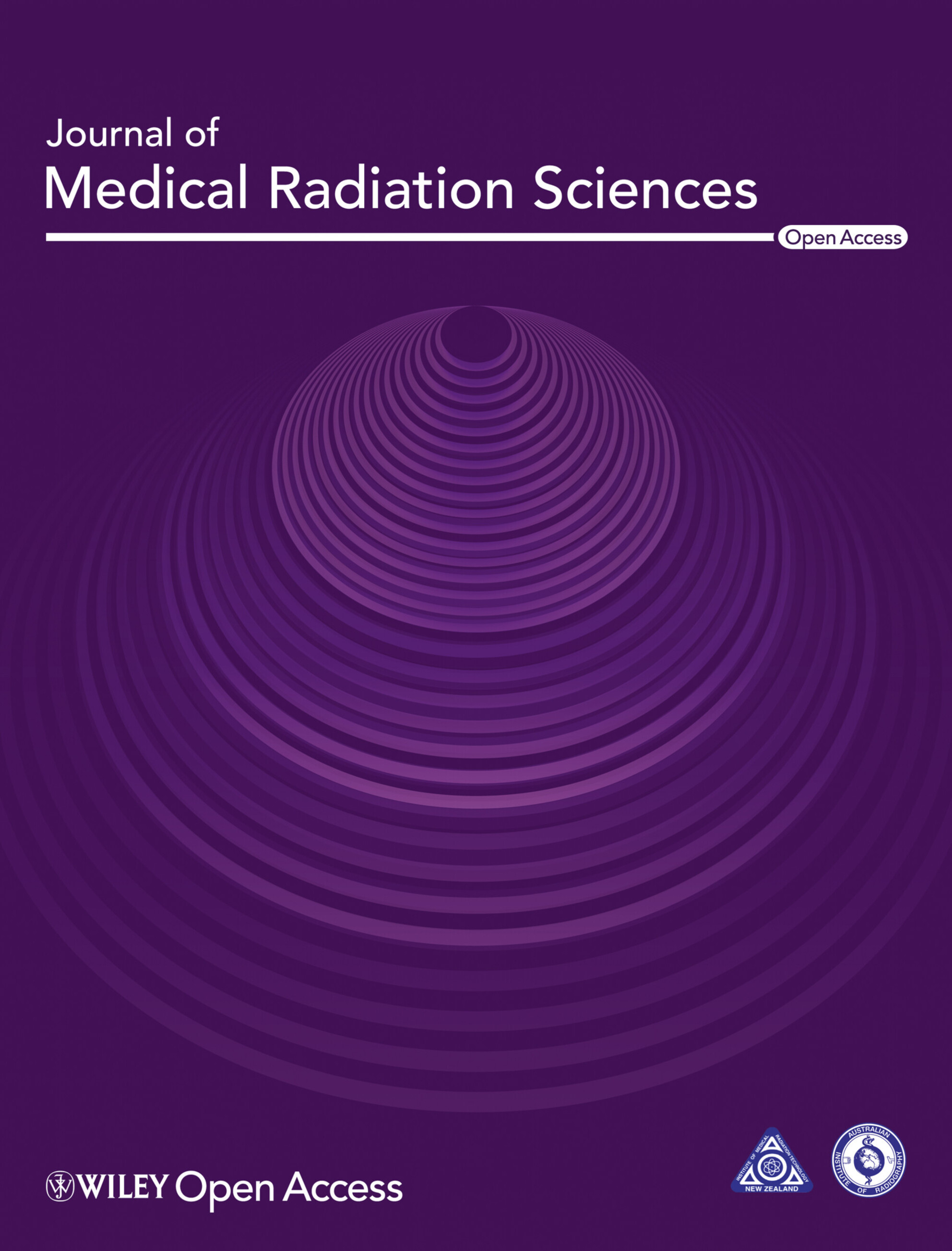
This letter is in response to https://doi.org/10.1002/jmrs.856, Impact of Pre-Examination Video Education in Gd-EOB-DTPA-Enhanced Liver MRI: Correspondence.
Continuing Professional Development
Continuing Professional Development—Medical Imaging
- Pages: 271-272
- First Published: 19 May 2025
Continuing Professional Development—Radiation Therapy
- Pages: 273-274
- First Published: 02 May 2025




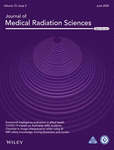
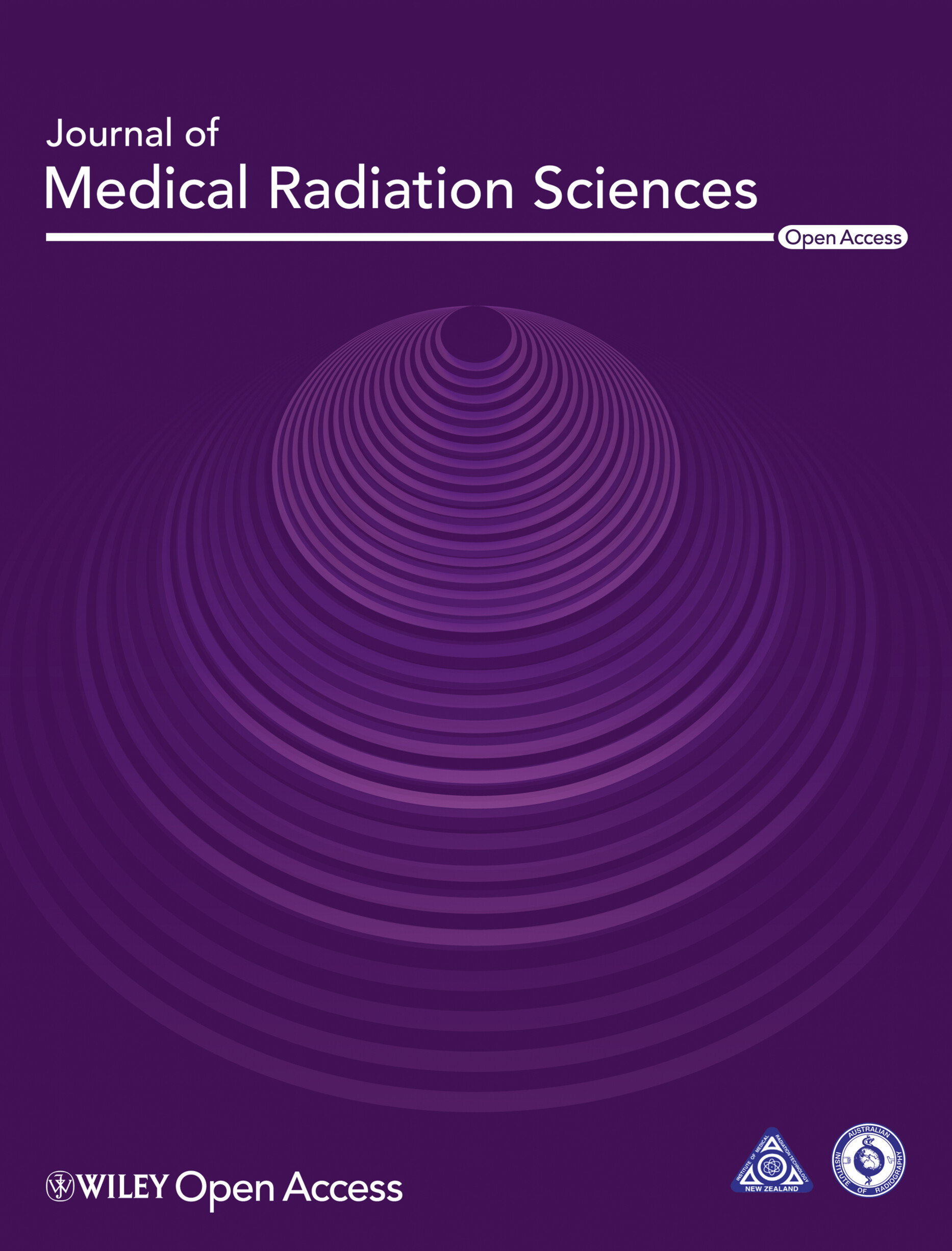
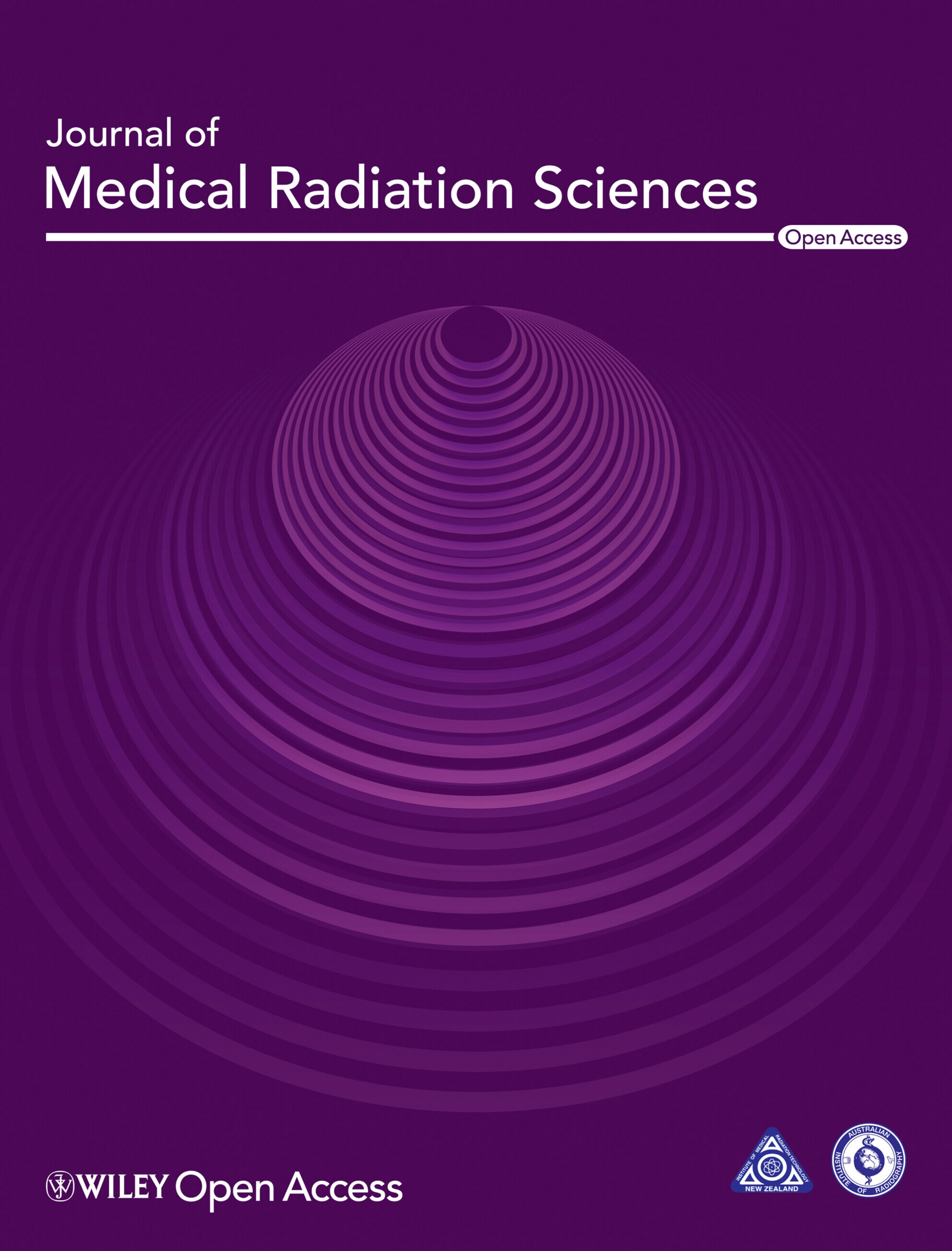
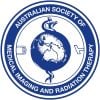
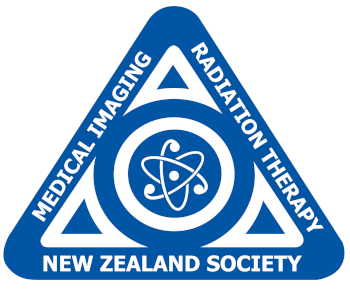

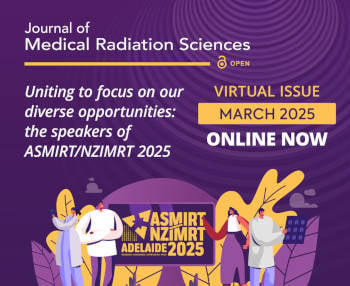
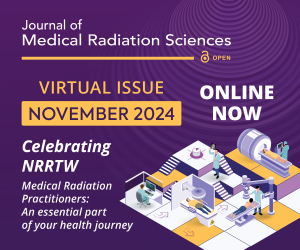
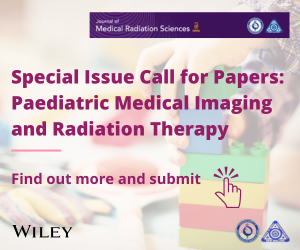
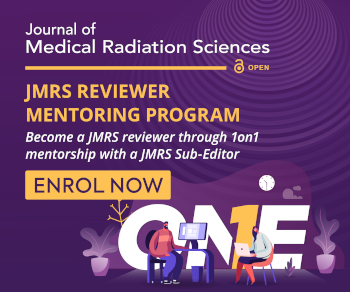
-1693813706.png)